Owning a horse is a massive responsibility, but you ask anyone who has ever kept one and you'll soon discover what a truly rewarding experience taking care of a horse really is. If you are seriously considering getting your first horse, or have recently gotten one, then you're probably already aware of just how much you'll have to do to keep your horse healthy and happy, and this beginner's guide on how to take care of a horse will provide you with the additional information you'll need to get started off on the right foot.
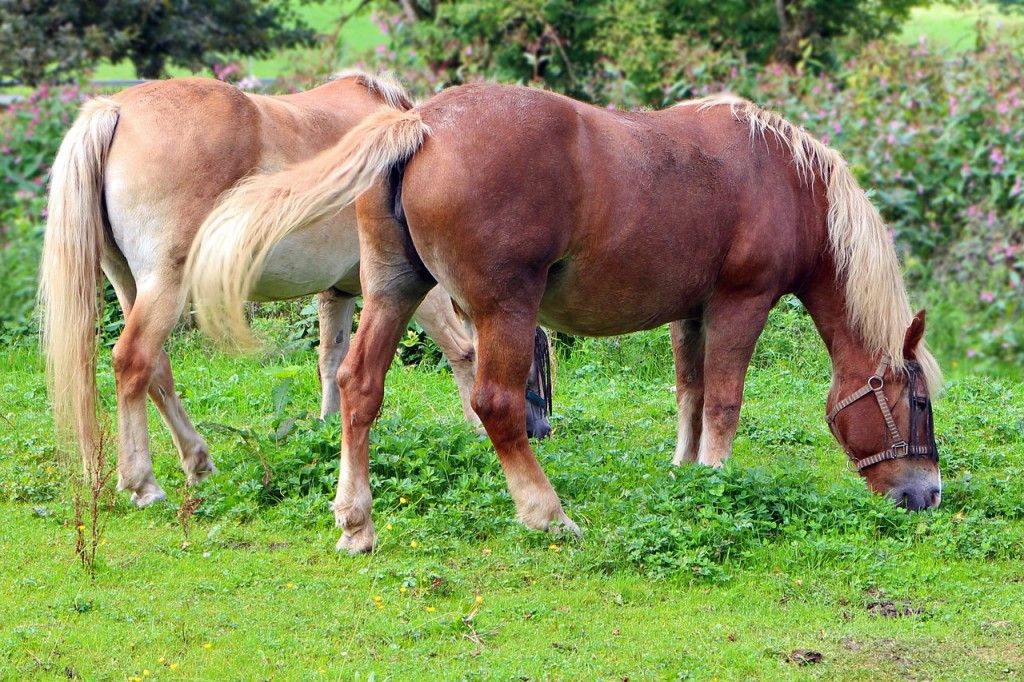
Stabling Your Horse
Your horse's accommodation will have a massive impact on its health and well-being, and it's up to you to ensure that its living conditions are the best that they can possibly be. Two of the most essential things that your horse will always need is a supply of fresh, clean water and a
haynet or rack full of hay that it can graze on whenever it fancies. Horses are naturally grazing animals, and if your horse is left without something to forage and graze on it can develop a number of health issues, such as Colic.
A horse's stable should be large enough for them to comfortably lie and roll around in without getting stuck, and they should be given a well-sized bed. Some of the most common bedding materials include:
- Straw: VERY popular and easy to manage, straw beds are cheap and comfortable for horses to sleep on.
- Newspaper: More costly than straw, newspaper is ideal if your horse suffers from allergies. If your horse's coat is lightly coloured and the newspaper gets wet, ink may transfer onto its coat and be visible.
- Shavings: Like straw, shavings are very easy to manage and incredibly popular. Picking between the two is mainly down to preference, accessibility and whether or not your horse has allergies.
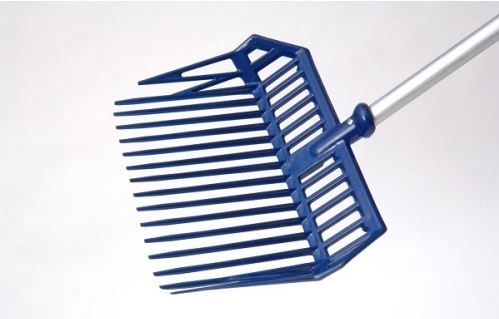
Taking care of a horse means that you'll have to manage its bed on a daily basis, but how much work this is will depend entirely on how messy your horse is and which of the following three bed management options you choose to observe:
- Daily Muck Out: Fully mucking out on a daily basis entails removing all waste products, sweeping out the bed and then laying it back down again.
- Deep Litter: Remove all solid waste daily and keep covering wet waste with clean bedding material. Once the pile starts getting high, muck it all out in one go and start again.
- Daily Skip Out: Remove all solid waste and clean out wet waste once a week. Sweeping out and putting in new bedding is also essential.
As your horse will probably spend a considerable amount of time in its stable, you may want to consider getting it a few
licks and stable toys to keep it occupied.
Horse licks come in a vast number of different flavours, and if you're looking for a good stable toy then you cannot go wrong with a
Jolly Ball.

Taking Care Of Your Horse's Health
Like any animal, a horse should be kept up to date on its vaccinations, particularly flu and tetanus, and a vet should always be consulted if anything seems wrong. Worming your horse is another thing that you should do regularly, and you'll want to consult a vet regarding what wormer you're best off using, as there are many different varieties available.
Worming ought to be done seasonally, but if you're planning on moving your horse to a different yard or it will be temporarily housed elsewhere for whatever reason, then you'll want to worm your horse before hand. Instructions on how to worm your horse and what dose you ought to give will depend on the wormer itself, but it is usually dictated by your horse's weight.
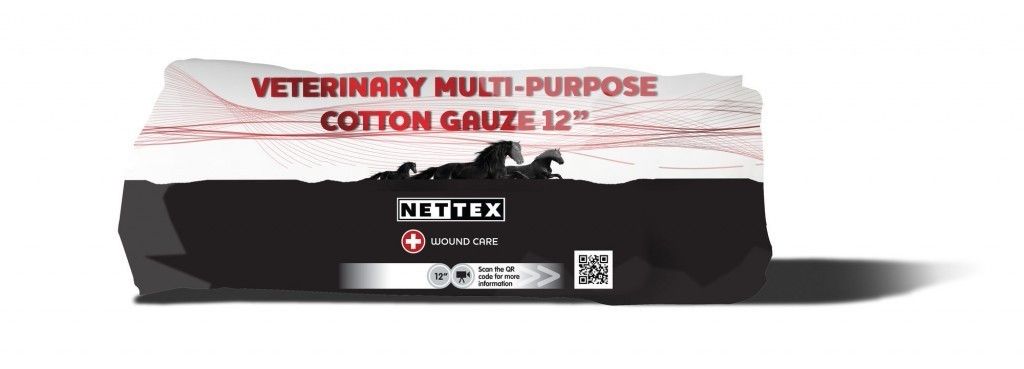
Lastly, anybody who keeps horses should have their own horse first aid kit, which at the very least ought to include:
- Purple spray
- Salt
- Hibiscrub
- Bandages/vet wrap
- Cotton wool
We strongly recommend keeping some
wound care and injury treatment supplies close by too, as well as some horse
health and well-being supplements.
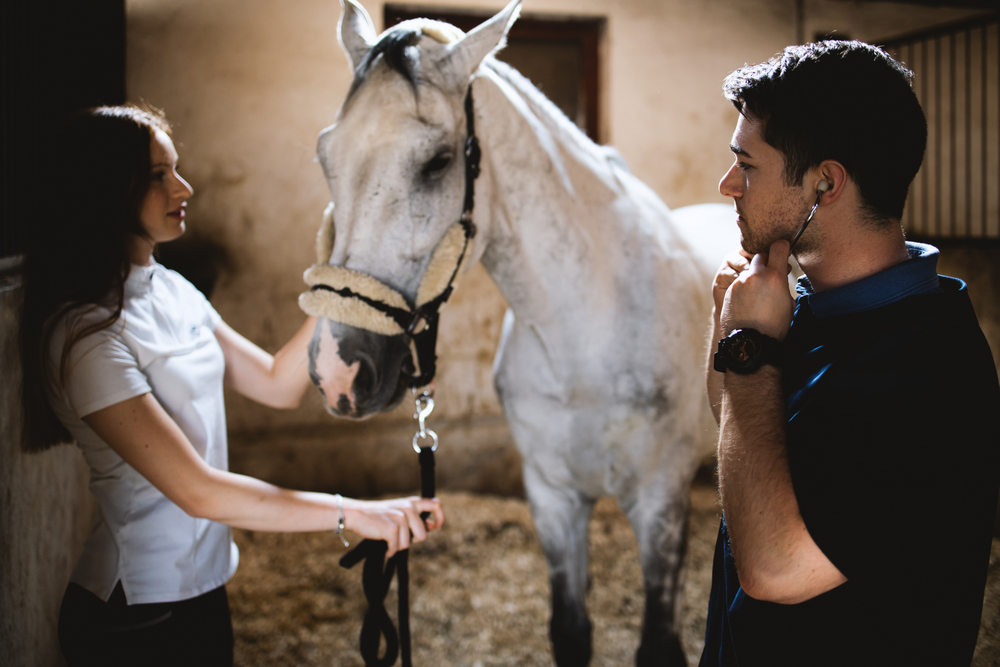
Horse Grooming
You'll need to groom your horse as regularly as possible in order to keep its coat in good condition. Grooming your horse will also help to build a bond between the two of you, which will pay off in more ways than you can possibly imagine. Some stables will have a selection of horse grooming tools that you can use, but most owners prefer to put their own tool kit together so that they always have access to it.
You can find all the horse grooming supplies you could possibly need in our 'Horse Grooming' category. Your grooming kit will need to include the following:
- Body Brush: Designed for use during the warmer months of the year, a body brush removes grease and dust from the horse's coat. You should not use a body brush on your horse during the winter, as it will need all of its natural oils.
- Dandy Brush: Tougher and more rugged that a body brush, a dandy brush is used for cleaning mud off your horse.
- Rubber Curry Comb: Best used in a circular motion, a rubber curry comb is used to remove any loose hair from a horse's body.
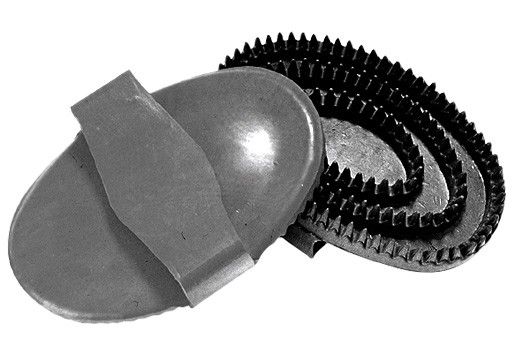
- Plastic Curry Comb: Like the dandy brush, a plastic curry comb is used to clean mud off your horse. They can be quite harsh, so only use the plastic curry comb during the winter months when your horse has its winter coat. Don't use one of these curry combs on a horse that has been clipped or on a horse's mane or tail as it can very easily break or damage them.
- Mane & Tail Brush: These brushes are a lot more delicate than the others and are designed to be used without causing any damage to the mane or tail.
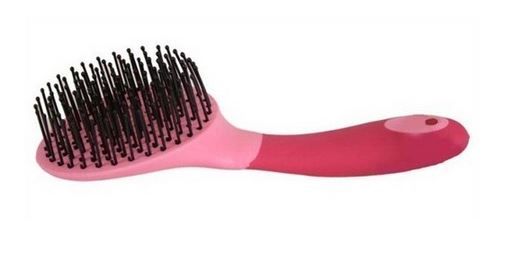
- Mane & Tail Comb: Used for pulling manes and tails.
- Face Brush: You should not use the same brush on your horse's face as you would on its sturdy body. Face brushes are smaller and softer than other brushes, so they can be used without harming your horse or making it uncomfortable.
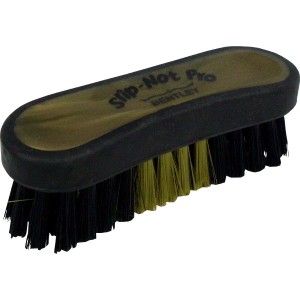
- Sponges: You will go through a lot of sponges, and we suggest using two at a time, one for the face and another for the rear.
- Hoof Pick: If left uncleaned there are a number of very unfortunate outcomes that might occur. Hoof picks are made with the sole purpose of cleaning hooves out, and they should be used before and after every ride. When clearing out your horse's hooves, be careful of the frog and make sure you remove any stones that may have become lodged.
About once every 8 weeks or so, it is advised that you get your horse seen to by a farrier, who will take care of and trim its hooves. If your horse has been shod then the farrier will re-shoe your horse after its hooves have been trimmed.
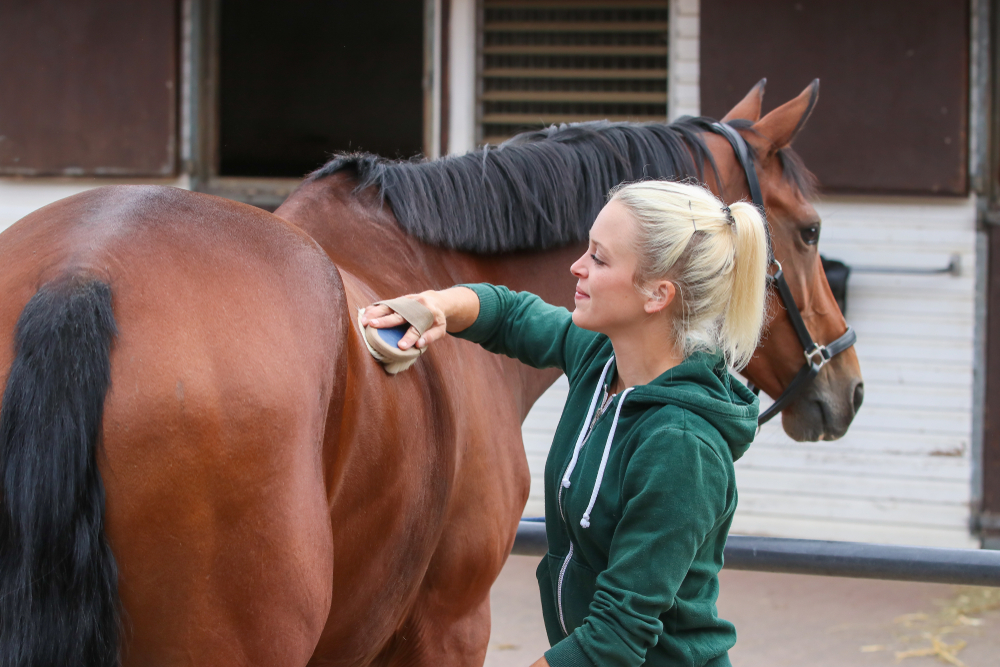
Feeding Your Horse
Some important factors should inform the quantity of food you give your horse, such as how much work and exercise it gets on a regular basis and what its weight currently is. When you're first learning how to take care of a horse it can be difficult to strike the right balance through feeding alone, which is why many owners will rely on
equine nutrition and horse feed supplements to ensure that their horses are always getting what their bodies need.
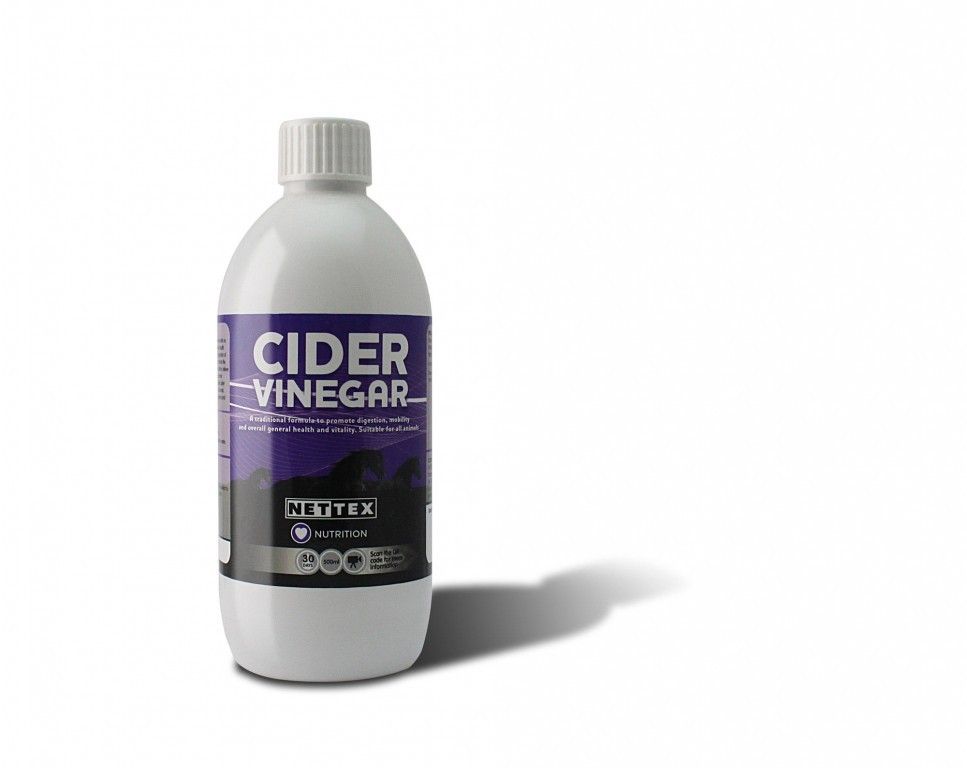
Regulating your horse's weight by strictly monitoring how much it eats is essential, and failing to do so can result in a number of diseases. 'Laminitus' is just one of the illnesses that overweight horses are prone to, and if they've had it once then they will become even more prone to it. A very serious and painful condition, symptoms of Laminitus include lameness, tender hooves and leaning, and if it is not caught and treated then it will develop to the point that the coffin bone will protrude from the sole of its foot and the horse will need to be put down.
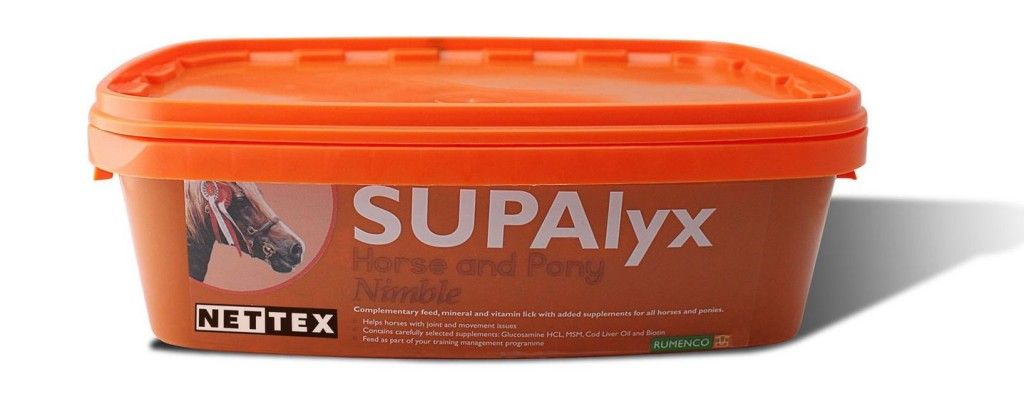
It is very important to ensure that your horse is getting the best possible nutrition. Horses on a high grain diet with very little forage, for example, will be at risk of developing 'Colic'; the symptoms of which include extreme abdominal pain. Symptoms will include sweating, abstaining from food and drink, rolling on the floor, kicking their stomach or pacing back and forth, so if you notice your horse doing any of these things be sure to call your vet as horse colic can be fatal. Other causes of colic include mouldy feed, inadequate access to water, stress, poor dental hygiene, radical diet changes, parasite infection and allowing your horse to eat sand.




